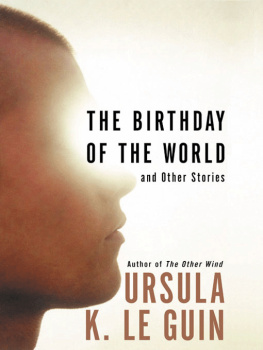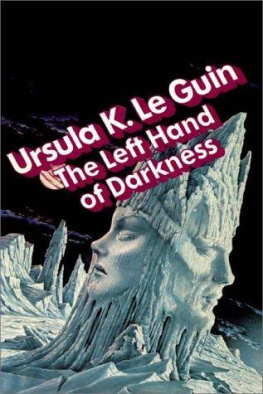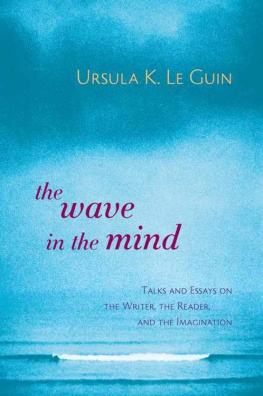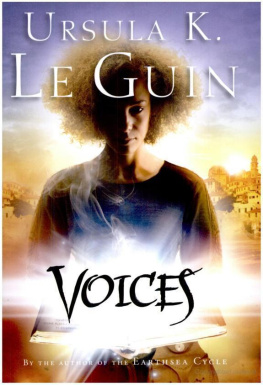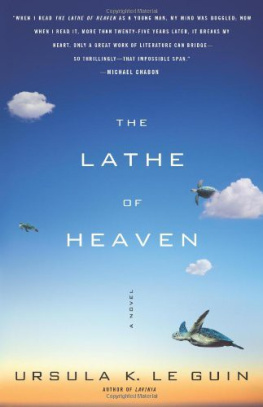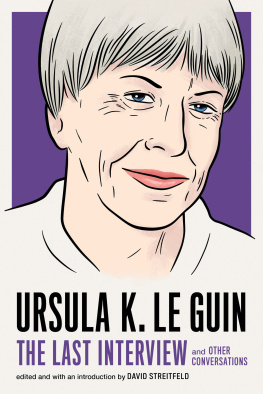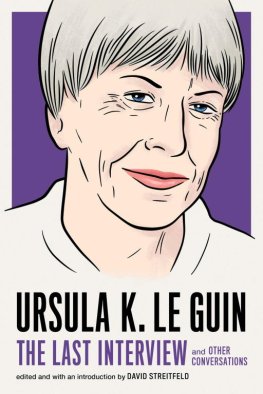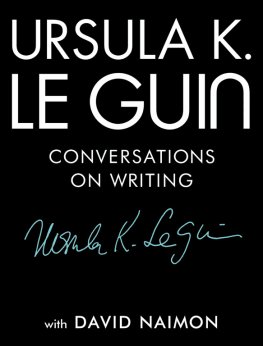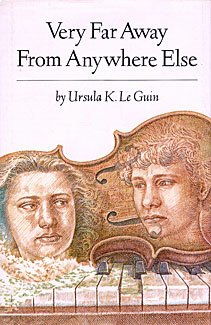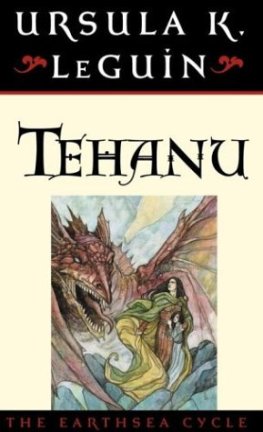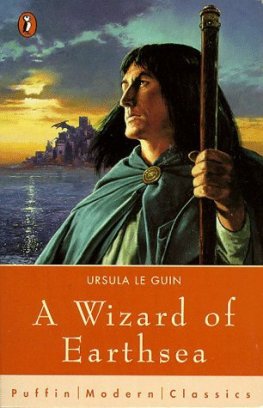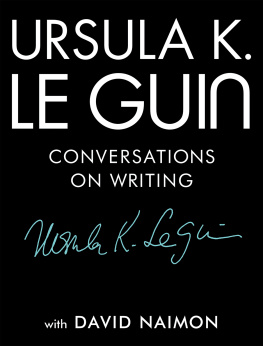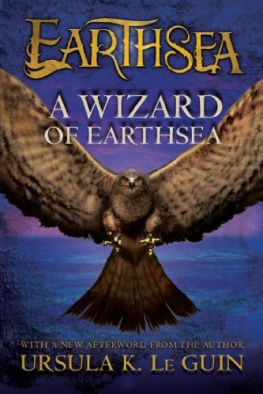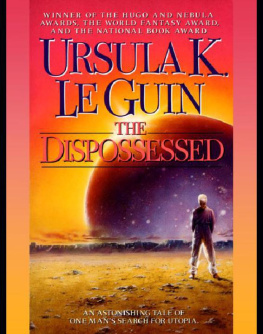Ursula K. Le Guin - The Birthday of the World: And Other Stories
Here you can read online Ursula K. Le Guin - The Birthday of the World: And Other Stories full text of the book (entire story) in english for free. Download pdf and epub, get meaning, cover and reviews about this ebook. year: 2003, publisher: Harper Perennial, genre: Art. Description of the work, (preface) as well as reviews are available. Best literature library LitArk.com created for fans of good reading and offers a wide selection of genres:
Romance novel
Science fiction
Adventure
Detective
Science
History
Home and family
Prose
Art
Politics
Computer
Non-fiction
Religion
Business
Children
Humor
Choose a favorite category and find really read worthwhile books. Enjoy immersion in the world of imagination, feel the emotions of the characters or learn something new for yourself, make an fascinating discovery.
- Book:The Birthday of the World: And Other Stories
- Author:
- Publisher:Harper Perennial
- Genre:
- Year:2003
- Rating:4 / 5
- Favourites:Add to favourites
- Your mark:
- 80
- 1
- 2
- 3
- 4
- 5
The Birthday of the World: And Other Stories: summary, description and annotation
We offer to read an annotation, description, summary or preface (depends on what the author of the book "The Birthday of the World: And Other Stories" wrote himself). If you haven't found the necessary information about the book — write in the comments, we will try to find it.
The Birthday of the World: And Other Stories — read online for free the complete book (whole text) full work
Below is the text of the book, divided by pages. System saving the place of the last page read, allows you to conveniently read the book "The Birthday of the World: And Other Stories" online for free, without having to search again every time where you left off. Put a bookmark, and you can go to the page where you finished reading at any time.
Font size:
Interval:
Bookmark:
H ARPER C OLLINS E-BOOK EXTRAS:
I nventing a universe is tough work. Jehovah took a sabbatical. Vishnu takes naps. Science-fiction universes are only tiny bits of word-worlds, but even so they take some thinking; and rather than think out a new universe for every story, a writer may keep coming back and using the same universe, sometimes till it gets a bit worn at the seams, softens up, feels natural, like an old shirt.
Though Ive put a good deal of work into my fictional universe, I dont exactly feel that I invented it. I blundered into it, and have been blundering around in it unsystematically ever since dropping a millennium here, forgetting a planet there. Honest and earnest people, calling it the Hainish Universe, have tried to plot its history onto Time Lines. I call it the Ekumen, and I say its hopeless. Its Time Line is like something the kitten pulled out of the knitting basket, and its history consists largely of gaps.
There are reasons for this incoherence, other than authorial carelessness, forgetfulness, and impatience. Space, after all, is essentially gap. Inhabited worlds are a long, long way apart. Einstein said people couldnt travel faster than light, so I generally let my people travel only nearly as fast as light. This means that whenever they cross space, they scarcely age, thanks to Einsteinian time dilation, but they do end up decades or centuries after they set out, and can only find out what happened meanwhile back on the farm by using my handy device, the ansible. (Its interesting to think that the ansible is older than the Internet, and faster I do let information travel instantaneously.) So in my universe, as in this one, now here is then there, and vice versa, which is a good way to keep history from being either clear or useful.
Of course you can ask the Hainish, who have been around for a long time, and whose historians not only know a lot of what happened, but also know that it keeps happening and will happen again.... Theyre somewhat like Ecclesiastes, seeing no new thing under the, or any, sun; but theyre much more cheerful about it than he was.
The people on all the other worlds, who all descended from the Hainish, naturally dont want to believe what the old folks say, so they start making history; and so it all happens again.
I did not plan these worlds and people. I found them, gradually, piecemeal, while writing stories. Im still finding them.
In my first three science-fiction novels there is a League of Worlds, vaguely embracing known planets in our local bit of the local galaxy, including Earth. This rather suddenly morphs into the Ekumen, a non-directive, information-gathering consortium of worlds, which occasionally disobeys its own directive to be non-directive. I had met the Greek word meaning household, oikumene, as in ecumenical, in one of my fathers anthropology books, and remembered it when I needed a word that might imply a still wider humanity spread out from one original hearth. I spelled it Ekumen. If you write science fiction you can spell things the way you like, sometimes.
The first six of these eight stories take place on worlds of the Ekumen, in my pseudo-coherent universe with holes in the elbows.
In my 1969 novel The Left Hand of Darkness the first voice is that of a Mobile of the Ekumen, a traveller, making a report back to the Stabiles, who stay put on Hain. This vocabulary came to me along with the narrator. He said his name was Genly Ai. He began telling the story, and I wrote it.
Gradually, and not easily, he and I found out where we were. He had not been on Gethen before, but I had, in a short story, Winters King. That first visit was so hurried I hadnt even noticed there was something a bit weird about Gethenian gender. Just like a tourist. Androgynes? Were there androgynes?
During the writing of Left Hand, pieces of myth and legend came to me as needed, when I didnt understand where the story was going; and a second voice, a Gethenian one, took over the story from time to time. But Estraven was a deeply reserved person. And the plot led both my narrators so quickly into so much trouble that many questions didnt get answered or even asked.
Writing the first story in this book, Coming of Age in Karhide, I came back to Gethen after twenty-five or thirty years. This time I didnt have an honest but bewildered male Terran alongside to confuse my perceptions. I could listen to an open-hearted Gethenian who, unlike Estraven, had nothing to hide. This time I didnt have a damned plot. I could ask questions. I could see how the sex works. I could finally get into a kemmerhouse. I could really have fun.
The Matter of Seggri is a compendium of reports on the society of a world called Seggri written by various observers over a period of many years. These documents are from the archives of the Historians of Hain, who are to reports as squirrels are to nuts.
The germ of the story was in an article I read about the gender imbalance that persistent abortion and infanticide of female fetuses and babies are causing in parts of the world our world, Earth where only males are considered worth the bother. Out of irrational and insatiable curiosity, in a thought experiment that became the story, I reversed and increased the imbalance and made it permanent. Though I liked the people I met on Seggri, and very much enjoyed channeling their various voices, the experiment was not a happy one.
(I do not really mean channeling. The word is just shorthand for my relation with characters in my fiction. Fiction right? Please do not write me any letters about other lives. I have quite as many as I can handle.)
In the title story of the collection A Fisherman of the Inland Sea, I invented some social rules for the people of the world called O, which is quite near Hain, as worlds go. The world, as usual, seemed to be something I just found myself on and had to explore; but I did spend genuine thought, respectable, systematic thought, on the marriage and kinship customs of the people of O. I drew charts, with male and female symbols, and lines with arrows, very scientific. I needed those charts. I kept getting confused. The blessed editor of the magazine in which the story first appeared saved me from a horrible blunder, worse than incest. I had gotten my moieties mixed up. She caught it, we fixed it.
Since it took a while to work out these complexities, it may be mere conservation of energy that has brought me back twice to O; but I think its because I like it. I like thinking about being married to three other people only two of whom you can have sex with (one of each gender but both of the other moiety). I like thinking about complex social relationships which produce and frustrate highly charged emotional relationships.
In this sense, you could say that Unchosen Love and Mountain Ways are comedies of manners, odd as that may sound to those who think science fiction is written ray-gun in hand. The society of O is different than ours here now, but not very much more different than that of Jane Austens England; perhaps less different than that of The Tale of Genji.
In Solitude I went out on the fringes of the Ekumen, to a place somewhat like the Earth we used to write about in the sixties and seventies when we believed in Atomic Holocaust and the End of the World as We Know It and mutants in the glowing ruins of Peoria. I still believe in Atomic Holocaust, you betcha, but the time for writing stories about it is not now; and the world as I knew it has already ended several times.
Whatever caused the population crash in Solitude probably the population itself it was long ago, and is not the concern of the story, which is about survival, loyalty, and introversion. Hardly anybody ever writes anything nice about introverts. Extraverts rule. This is really rather odd when you realise that about nineteen writers out of twenty are introverts.
Font size:
Interval:
Bookmark:
Similar books «The Birthday of the World: And Other Stories»
Look at similar books to The Birthday of the World: And Other Stories. We have selected literature similar in name and meaning in the hope of providing readers with more options to find new, interesting, not yet read works.
Discussion, reviews of the book The Birthday of the World: And Other Stories and just readers' own opinions. Leave your comments, write what you think about the work, its meaning or the main characters. Specify what exactly you liked and what you didn't like, and why you think so.

